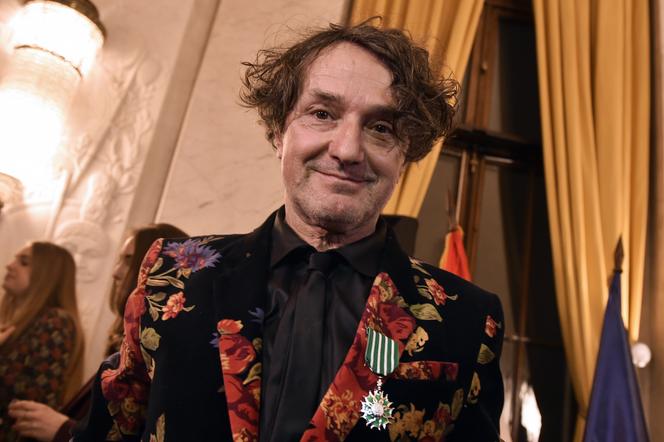


From his villa in Montenegro, where he is waiting to leave for his next concert in Portugal, Goran Bregovic spoke about a "stupid story" and "nonsense." "All of a sudden, I'm pro-Russian! I don't get it," the Bosnian composer and musician said indignantly over the phone. His famous Balkan brass band was prevented from entering Moldova, where it was due to perform on Sunday, August 20 at a festival some 60 km from the capital Chisinau.
This small country bordering Ukraine, which also faces serious security threats from Moscow, is particularly critical of the musician's ambiguous stance on the conflict. On Monday, August 21, Interior Minister Adrian Efros defended the Moldovan police's decision, citing "security reasons" concerning an "artist who has expressed a pro-Russian view and supported the annexation of Ukraine by the Russian Federation." Following the expulsion of his orchestra, which always travels a little ahead of schedule, Bregovic immediately abandoned his plans to visit Moldova and canceled the concert.
One of the events scrutinized by the Moldovan authorities was a 2015 concert in Sevastopol, in annexed Crimea. In some Ukrainian circles, this concert is still used as grounds for criticism against the artist. "It was a concert that was connected with the Ukrainian tour, organized by the same agency," Bregovic said, stressing that, during the same tour, he was able to play several times in Ukraine with no protests. "I'm from Sarajevo, I'm traumatized by war, I'm not going to support war or aggression," added the artist who was born in 1950 and became immensely popular throughout Yugoslavia in the 1970s.
Spearheading the wave of Balkan music that subsequently made Europe dance in the 2000s, the musician has always taken refuge behind his desire "not to get involved in politics," to avoid expressing himself more directly on those responsible for the war in Ukraine. This is the same cautious stance as that adopted in his public comments on the sources of the Balkan wars. His huge hit Kalachnikov (1995) has sometimes drawn criticism from people who accuse him of promoting violence, "but it's an ironic song that pokes fun at people who like to carry weapons," he said.
Without sharing the openly pro-Putin tendencies of director Emir Kusturica, for whom he composed the music of several cult films before falling out with him, Bregovic has nonetheless sometimes made ambiguous statements about Russia. At a press conference during his trip to Sevastopol, for example, he criticized "the West's paranoia" about Moscow. "In the Balkans, we have always felt the greatness that comes from the East, from Russia," he added, echoing a line of thought widely shared in Serbian nationalist circles and by some of those nostalgic for Yugoslavia. Bregovic, who comes from a multi-ethnic family, has said that he "doesn't remember [his] statements," which date "from before the (current) war."
You have 21.46% of this article left to read. The rest is for subscribers only.
